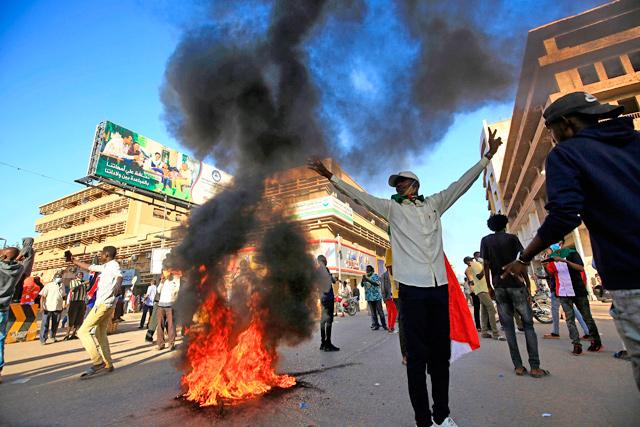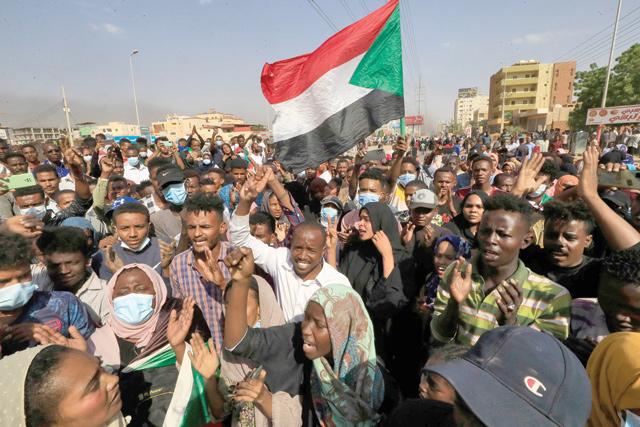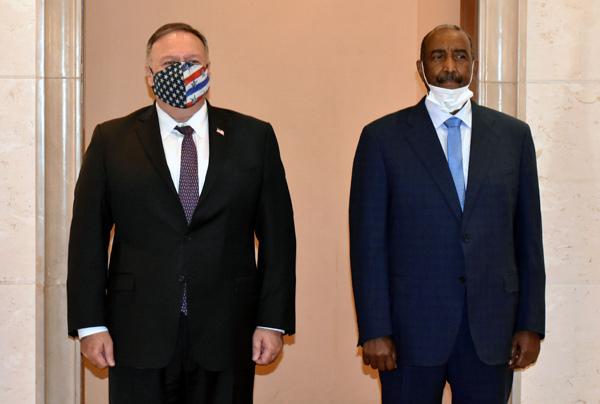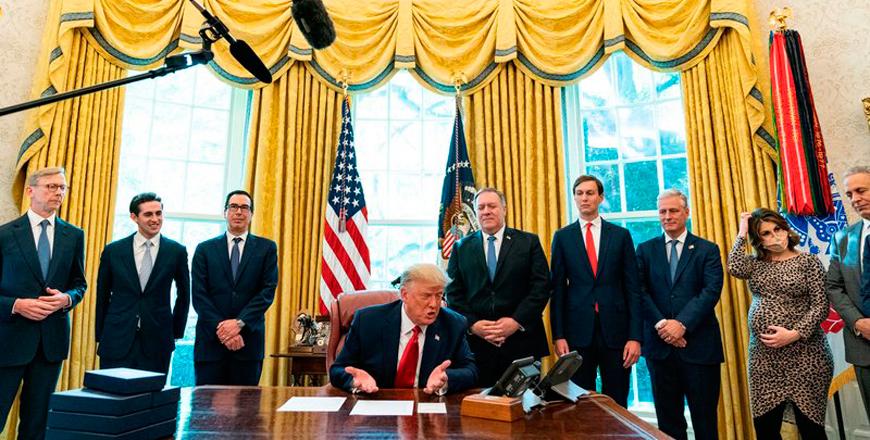You are here
Sudanese demand ‘justice’ two years after protests erupted
By AFP - Dec 19,2020 - Last updated at Dec 19,2020

A Sudanese man flashes the V for victory sign in front of burning tyres during protests in the capital Khartoum to mark the second anniversary of the start of a revolt that toppled the previous government, on Saturday (AFP photo)
KHARTOUM — Thousands of demonstrators marched through Sudanese towns on Saturday calling for change, two years since the start of a protest movement that led to the toppling of Omar Al Bashir.
Black plumes of smoke billowed into the sky from burning tyres in the capital Khartoum’s southern Al Sahafa district, with protesters marching to the gates of the presidential palace chanting “justice”.
Demonstrators — many of them young and frustrated by what they see as a lack of change amid a dire economic crisis — waved the national flag as they marched, or carried photographs of “martyrs” killed during past protests.
“Today we have sent a very clear message to the civilian and military government,” said 21-year-old protester Nada Nasereldine.
“We have the power of the streets, it is our weapon and we will use it if our demands are not met.”
Demonstrations also took place in Omdurman and Bahri, cities across the Nile from Khartoum, and in key towns including Madani and Atbara, as well as in the east, in Kassala and Port Sudan on the Red Sea.
Numbers taking part totalled several thousand people, according to estimates by AFP correspondents and other journalists.
Economic crisis
Protesters at Khartoum’s airport held up printed posters of Prime Minister Abdalla Hamdok, his image scored out with the words “Go away!”
Some shouted slogans of the revolution, including “the people want the fall of the regime” — also a rallying cry during Arab Spring demonstrations in the region a decade ago.
“We have taken to the streets today because the transitional government does not meet our demands,” Hani Hassan, a 23-year-old protester, told AFP, criticising the economic crisis in the country.
Sudan’s youth-led movement started protesting on December 19, 2018, seeking greater freedoms and an end to Sudan’s international isolation.
Bashir was finally ousted by the army in April the following year, and the new authorities have since put him on trial over the Islamist-backed coup that first brought him to power in 1989.
He also faces genocide charges from the International Criminal Court.
But those responsible for the repression during the revolution have not been brought to justice.
Experts warn the country is now at a critical juncture, as tensions have flared between the military and civilian leaders who share power in a fragile transitional government.
Earlier this month, the United States removed Sudan from its list of state sponsors of terrorism, a designation dating from the times when Bashir hosted Osama Bin Laden and other Islamist militants.
The delisting should help bring badly needed foreign aid, debt relief and investment to one of the world’s poorest countries.
At the same time, an economic crisis marked by skyrocketing inflation and exacerbated by the global novel coronavirus pandemic is bringing yet more pain to the African country of over 40 million.
Army chief Gen. Abdel Fattah Al Burhan — who doubles as the head of the Sovereign Council, the country’s highest executive authority — this month blasted the transitional institutions.
On Saturday, Burhan congratulated “the great Sudanese people on the anniversary of the glorious December revolution”, he wrote in a message.
“We renew the commitment that the armed forces remain the guarantor and protector of the revolution and its achievements,” he said.
Related Articles
KHARTOUM — Sudan's top general declared a state of emergency, dissolved the authorities leading country's democratic transition, and announc
KHARTOUM — The United States on Monday removed Sudan from its state sponsors of terrorism blacklist and declared a "fundamental change" in r
KHARTOUM — Sudan signed on Wednesday the “Abraham Accords” ties with Israel, alongside an aid agreement promising $1 billion annual World Ba














